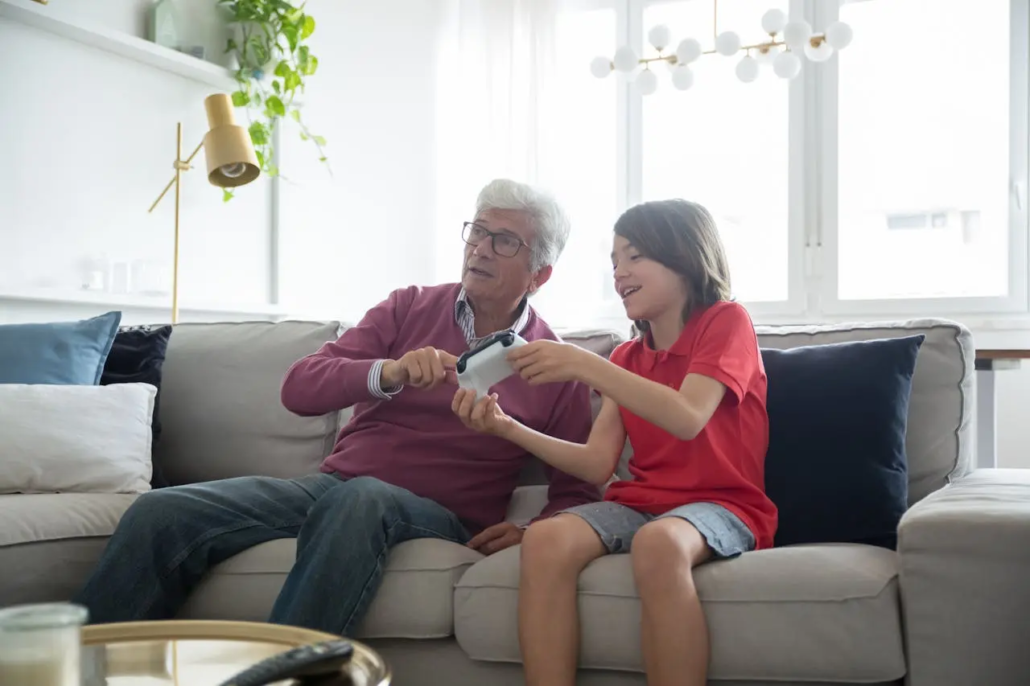What is ageism and how it affects us?
You might have heard the term “ageism”. Coined in 1969 by Robert Neil Butler, the founding director of the National Institute on Aging, it essentially describes negative attitudes and discrimination against older adults. Unfortunately, ageism permeates our society and our daily lives. Older adults are regularly considered out of touch with modern society and stuck in their “old” ways. They are also often viewed as weak and uninteresting. Indeed, such depictions of older adults are abundant in the media we consume. At the same time, certain activities, hobbies, places etc. are believed to be the domain of the young and healthy and are thus considered off limits to older adults.
Many forms of discrimination can be self-sustaining. We tend to put everything in neat little categories, assign certain characteristics to these categories and then behave accordingly. So, in the case of ageism, we accept the stereotypes about older adults and then we behave towards them based on these stereotypes. And since we are convinced that they are uninteresting and irrelevant to us, we have little meaningful contact with them. Thus, our stereotypes remain unchallenged and persist. Unsurprisingly, we are then stuck in this vicious cycle or stereotyping, exclusion and lack of communication.
Is there any way to break this vicious circle and communicate with our fellow humans in an authentic way, free from ageism and generational prejudices? As previously mentioned, lack of contact is a major factor in maintaining prejudices. So, what would happen, if we just started communicating across generations? Actually, it has been shown that intergenerational contact is indeed beneficial for all involved. It’s not just a courtesy towards older adults. It helps us build a stronger sense of community, learn from each other, share and enjoy our different experiences and perspectives and, dare I say, better understand what it means to be a human.

Moving away from ageism through intergenerational contact
But is cherishing our differences all there is to intergenerational contact? I would argue that what is more important and fascinating is realizing how similar we are despite superficial differences such as age. We may have different experiences, daily routines and hobbies but we all share the same human qualities: empathy, curiosity and the capacity for love. And often we do actually like the same activities and hobbies or we are inspired to try each other’s hobbies! That’s especially true when it comes to new technologies. In contrast to stereotypes, older adults show an increasing interest in new technologies which are viewed as something new and exciting, a way of actively participating in today’s digital society and as a means of connecting and communicating with loved ones and especially their grandchildren.
On a hopeful note, perhaps we are indeed ready to move beyond ageist stereotypes. The popular reaction when older adults engage in activities that are stereotypically the domain of younger people is overall positive. Society usually reacts with a mixture of acceptance, happiness and (pleasant) surprise showing that we might actually be ready to celebrate the breaking of age-related stereotypes. Case in point, the Silver Snipers, a professional eSports team with an average age of 71 years old, has been met with overwhelming support and enthusiasm from the computer gaming community. The Silver Snipers have not only proven that older adults can be awesome, cool and relevant but some team members have also mentioned that their love for computer gaming has helped them connect more with their grandchildren.
I hope by now I have convinced you that age is merely one of the many things that describe us and not something that should divide us. As for me, I plan on starting a mountain bike club when I retire!
What can I do?
- As an older adult: Remember that you are never too old to try new things. You can enjoy things that young people enjoy (and be better at them!).
- As a relative: Try new hobbies and activities with your loved ones. Share your interests and maybe play some videogames with them (if you dare!).
- As an assisted living or nursing home owner / manager: Ensure that your residents have access to activities they are interested in and not just stereotypical older adult activities.



